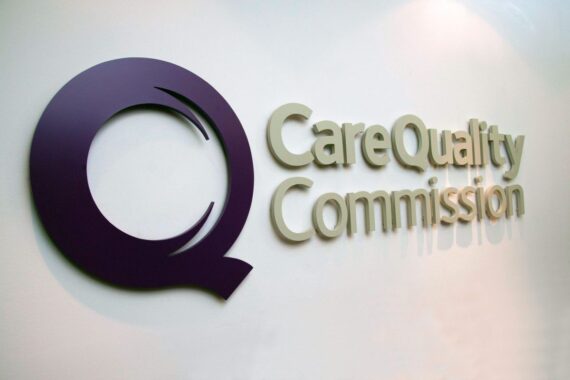A Government review of arm’s length bodies (ALBs), including the NHS England, CQC and UKHSA could see ‘powers returned to accountable ministers’.
The evaluation will look at the efficacy and efficiency of all public bodies and whether they should be ‘abolished or retained’ or should carry on delivering all of their functions.
NHS Improvement, NHS Digital and Health Education England (HEE) also fall under the remit of the review.
It remains unclear when the review – which will be led by government efficiency minister Jacob Rees-Mogg – will begin.
The Cabinet Office published new guidance for a review of public bodies at the end of April that said there is an ‘urgent need for public service reform’.
The guidance said: ‘Reviews will consider whether the body should be abolished or retained; whether it should continue to deliver all of its functions; and whether it has an effective relationship with its department.
‘The outcome of this work should see powers returned to accountable ministers, [and] greater efficiency.’
It added that the review should ‘assess whether there are more efficient and effective alternatives’ for the Government’s aims.
It said: ‘This can include merging the body with a similar body, and closing the body and bringing its functions back to the department.’
It added that ‘ultimately, ministers are accountable to Parliament for the performance and policy framework of their ALBs’, adding that it is ‘essential’ they are confident that ALBs are ‘operating effectively’.
The Government said that reviews will ‘vary in size and scale’, ranging from ‘light-touch exercises largely undertaken via a self-assessment’ to a team supporting a ‘Lead Reviewer on full-scale review’.
The review will be based on four criteria:
- Efficacy – expectations that the ALB has a ‘clear purpose’ in the ‘correct delivery model’
- Governance – expectations to be met by ALB boards
- Accountability – expectations for ‘accountability and communication’ between relevant Government departments and ALBs
- Efficiency – expectations for ‘identifiable cashable efficiency gains’
A similar Government review carried out in 2011 saw ALBs cut their budgets considerably.
Ministers will:
- decide which bodies are reviewed and when by writing an annual prioritisation letter to the Minister for Brexit Opportunities and Government Efficiency and Chief Secretary to the Treasury;
- decide on and appoint the Lead Reviewer;
- decide whether a body merits an in-depth review or not;
- if appropriate, request a challenge panel is established;
- accept or reject the recommendations suggested; and
- hold to account the department and public body for the implementation of the recommendations.
Source: Cabinet Office
In February, the CQC was accused of ‘soliciting negative GP feedback’ after data from its ‘Give feedback on care’ portal showed a 176% rise in complaints.
It came after the regulator admitted its inspections may ‘inadvertently disadvantage’ ethnic minority GPs.
Health ALBs to be reviewed:
- CQC
- Health Education England
- NHS England
- NHS Improvement
- NHS Digital
- UKHSA
Source: Cabinet Office
Related Articles
READERS' COMMENTS [3]
Please note, only GPs are permitted to add comments to articles












Regulation is too often regarded as an unarguable universal good. Whereas, in reality it has costs and harms attached, as well as benefits – much like screening. Nobody looks at the overall cost+harm vs benefit of regulation. I have patients in the police and in teaching who have suffered similarly.
This review is long overdue.
This type of review is indeed well indicated but do we need to look into the independent nature of this ?
‘’It remains unclear when the review – which will be led by government efficiency minister Jacob Rees-Mogg – will begin.’’
Mmmmmm
What type of inquiry did we say we need for Covid-19 pandemic in 2010 and 2011 ( even up to now)?🤨🤔
“ALB’s”
yet another sexy buzzword !
how much were a bunch of CSs* paid to dream that one up ?
*Civil Servants – not that they serve much !